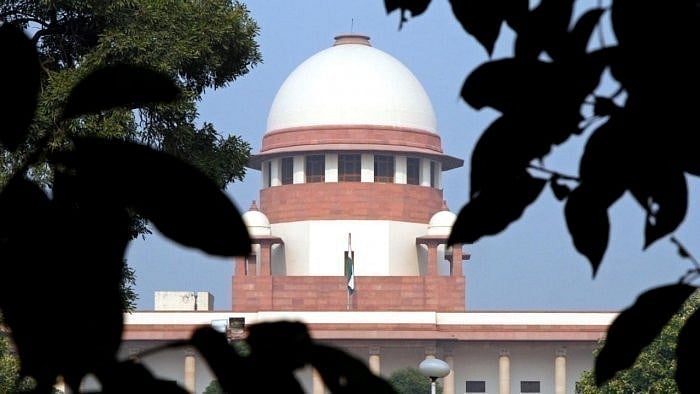
The Supreme Court of India.
Credit: PTI File Photo
New Delhi: The Supreme Court on Thursday said it is up to the executive and the legislature to decide whether people, who have availed quota benefits and are in a position to compete with others should be excluded from reservation or not.
A bench of Justices B R Gavai and Augustine George Masih made the observation on a plea referring to a seven-judge Constitution bench judgment of the apex court in August last year.
"We have given our view that taking into consideration the past 75 years, such persons who have already availed benefits and are in a position to compete with others, should be excluded from reservation. But it is a call to be taken by the executive and the legislature," the bench said.
The SC's seven-judge bench had on August 1, 2024 held sub-classification of the Scheduled Castes and Scheduled Tribes is constitutionally permissible. The top court had also favoured for applying principle of creamy layer among the SC/STs too.
By a majority view of 6:1, the bench had overruled the 2004 judgment of a five-judge Constitution bench in case of 'E V Chinnaiah vs State of Andhra Pradesh' which has held the SCs and STs are homogenous groups and hence, States cannot further sub-classify them to grant a quota within a quota for the more deprived and weaker castes in these groups.
On September 24, 2024 the court had dismissed review petition against the judgment and rejected an application for open court hearing in the matter.
On Thursday, the counsel appearing for the petitioner referred to the apex court's verdict asking for the policy to identify such a "creamy layer".
The bench said the apex court's view was that the sub-classification was permissible.
The petitioner's counsel said the Constitution bench had directed states to formulate the policy and almost six months had passed since.
"We are not inclined," the bench said.
When the counsel requested to withdraw the plea to file a representation before the authority concerned, which could decide on the issue, the bench allowed it.
"The legislators are there. Legislators can enact a law," the bench said as the counsel claimed states would not frame the policy and eventually the top court would have to intervene into the matter.
